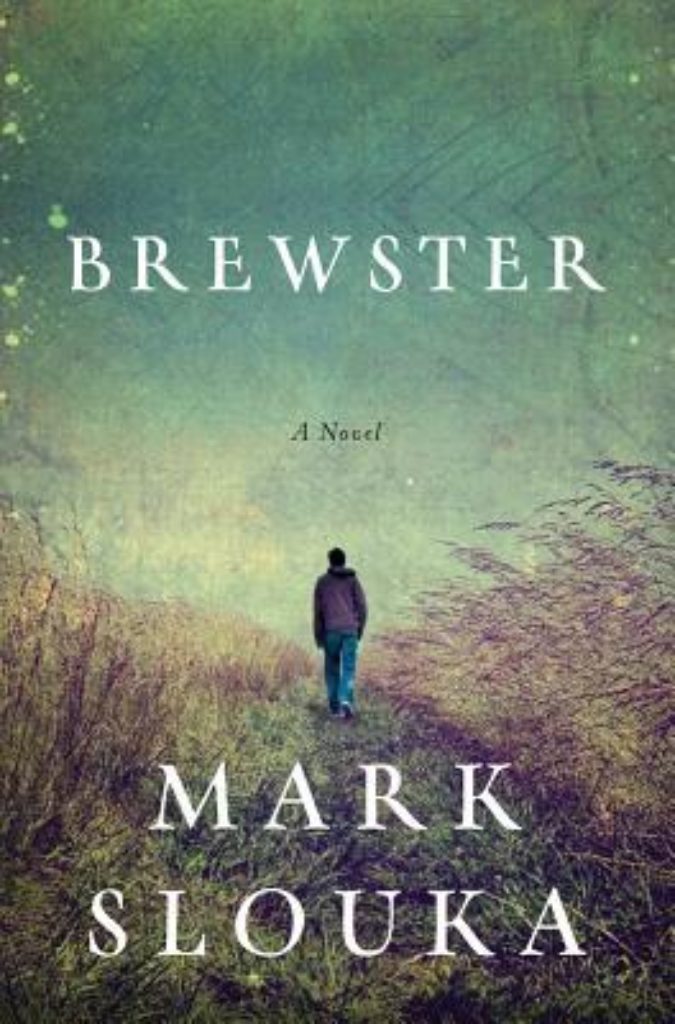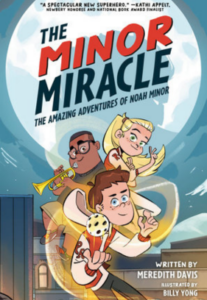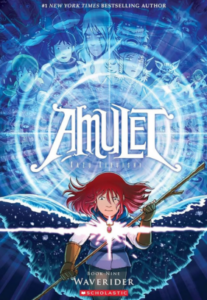The narrator, Jon Mosher, is an older person who is looking back at his life. The story centers on his growing up in Brewster, New York, in the 1960s. His life is told in nonlinear flashbacks — some from his childhood but most from his teen years.
His parents are Jewish immigrants who survived Nazi Germany. His father owns a shoe store. His mother is a housewife. She has never recovered from her oldest son electrocuting himself by plugging in a faulty lamp he’d found. Her depression separates her from Jon, and he often feels as though he is the child who died.
Until high school, Jon doesn’t really have friends. He is quiet and introverted, content to find solace in books rather than in real life. Sophomore year, however, Jon becomes friends with Ray Cappicciano, a troubled teenager living with his infant brother and father — an out-of-work ex-cop. Ray’s stepmother left the family shortly after his brother Gene was born. Ray often comes to school with bruises. He claims to have gotten them from fights with other kids. Jon meets Ray in the school cafeteria. He meets a boy named Frank there as well.
Jon’s history teacher asks him to try out for the track team. At the trials, Jon ignores the coach’s warning to pace himself. Instead, Jon pushes himself to near collapse before staggering to the finish line. Two days later, he asks the coach, Mr. Falvo, if he can run the time trials again. Falvo insists he join the team and learn to run correctly. Jon comes to love the ritual of running track, the pain it causes him, and the satisfaction it gives him. It becomes a metaphor for his life — his struggle to be noticed by his mother, and his desire to make a difference in the world.
Over the next few months, Jon becomes an accomplished member of the track team, and his friendship with Ray and Frank deepens. He learns not to talk to Frank about religion, as Frank is a committed Christian. He also senses that Ray is a different person around him, intelligent and thoughtful, not the tough delinquent everyone assumes. Ray admires Jon’s drive, both in track and in school. He encourages Jon to go to college and get out of Brewster.
One day, when Ray has no milk to feed his baby brother, Ray asks if Jon’s parents might give him some. At first, Jon is sure his parents will hate Ray, but his friend is charming and polite. Jon’s mother soothes Gene and feeds him a bottle while Jon’s father jokes with Ray.
One morning on the way to school, Jon sees his neighbor Tina arguing with her father. Her father hits her. He leaves her crying in the driveway. Jon comforts her, and she offers him a ride to school. Although Tina is five years older than Jon, he has fantasized about having a sexual relationship with her.
Instead of going to school, the two head out to the country and come across a young woman at a private lake. The woman takes them to meet her boyfriend and their two young children. Tina and the couple smoke marijuana while the children skinny dip in the lake. The couple and their kids leave to run an errand but allow Tina and Jon to stay.
Tina leads Jon to the bedroom to have sex. Jon skips school to be with Tina for the next two days. Although he begs to go with her, Tina leaves Brewster and her abusive father. Jon returns to school.
As Jon’s friendship with Ray deepens, he becomes better acquainted with Ray’s father. Although the man is crude and often drunk, Jon comes to crave the man’s admiration. Ray and Jon take long walks through the city together as a way to escape their uncomfortable home lives. Sometimes Ray disappears for several days. His father claims to have no idea where he’s gone.
When Ray turns up, he often has a fat lip or sore ribs. He says he skipped town for a few days and got in a fight. The older Jon narrating the book says he probably knew what was really happening, but wouldn’t admit it to himself. Ray begins to spend more time at Jon’s house, often staying for several days. They become as close as brothers.
A girl from Connecticut moves to Brewster. Her name is Karen. She is intelligent, pretty and from a good family. Jon immediately falls in love with her, but she is drawn to Ray. The two become inseparable, and Karen often hangs out with Ray, Jon and Frank. Karen questions Jon about Ray’s father since she hasn’t met him. Jon warns her that Ray’s father is complicated. Ray’s younger brother, Gene, has been sent to live with an aunt in Yonkers. Over the summer they borrow a car and visit Gene. They talk about Woodstock and how they’d like to go, but they don’t have a car or money. The aunt wonders what the people up there hope to accomplish by protesting the Vietnam War.
Ray and Jon start up a friendship with Jimmy, a local mechanic. He teaches them about repairing cars while they talk about life and the world. Jimmy admits that his father hit him until he turned 20 and fought back. Ray says that he won’t stay that long. He’d up and leave, run to California with Karen and grow food and live on the beach. Jimmy gives Ray an old car to fix up. The boys and Karen dream about leaving Brewster and opening up a record shop in the West.
The boys are now in their senior year of high school. Jon runs track and hopes to get a scholarship to college. He also hopes to win a medal in the state competition. He works part time at his father’s shoe store. One night, when it would have been his brother’s birthday, Jon comes home drunk with a birthday cake and a six-pack of beer. He hopes to confront his mother, who has started locking herself in her dead son’s room, listening to children’s records. He hopes the confrontation will bring healing; instead, it only angers his mother. She thinks he’s being cruel, trying to hurt her. He begs her to see that he’s still her son, but she doesn’t accept him. She feels as if Jon is not her son. Sometime later, Ray comes to school severely beaten. He claims to have had a boxing fight to try and make money. Mr. Falvo talks to Jon to find out more about Ray’s life at home. He’s convinced that Ray’s father is abusing him, but when Jon tries to talk about it, Ray denies it. He even denies it to the police when they are called in on suspicion of child abuse. Ray’s father gives Jon a souvenir he took from a Nazi officer when he served in Germany. It is a skull patch from the officer’s uniform. Jon accepts the gift but hides it in his closet so his parents don’t find it.
Jon gets sick and is home from school with a high fever for a week. When Ray is also absent from school, Karen gets worried. Jon’s mother won’t let him talk to her. Eventually, she finds her way to Ray’s house. Ray’s father claims that Ray is upstairs asleep. Although he never touches her, it is clear from his words and actions that he is planning on assaulting Karen. Ray comes into the room in time to stop his father. He has again been severely beaten. Karen and Ray spend the night in a cheap hotel. The following night, Ray arrives at Jon’s house and asks to stay. He tells the truth to Jon, but tells Jon’s parents that some thugs in the street attacked him. He also claims to be ready to leave his house for good, now that his brother is safe with his aunt. A few days later, Ray, Jon, Frank and Karen go to Ray’s house to get his clothes. His father has changed the locks and left a note telling him to come back on the weekend if he wants his things.
On Saturday, Jon wins his race at the preliminaries before the state competition, and then drives with the others over to Ray’s house. When the door opens, Ray’s father welcomes them politely. He brings Gene out to meet them. Ray knows that he has to stay in the house to protect his little brother. Karen begs him to tell the authorities, but Ray doesn’t believe it will help since his father is pretending to try and be a better parent. Ray promises to try to figure out a plan to get out of Brewster while keeping his brother safe.
Ray’s father finds out about the car Ray and Jon have finished fixing up. He confronts Ray. Ray argues that he and Karen are going away together. Ray leaves the house. When he comes back later that night, he finds that his father has captured all the puppies his dog recently delivered and severed their legs with kitchen shears. He leaves them on the counter for Ray to see. One of them isn’t dead yet so Ray kills it with a meat mallet. He cleans up the bodies and the kitchen, then drops them in a dumpster outside of a grocery store. Jon tries to convince Ray to leave, but he has to remain to protect his little brother. On the morning of the big state track meet, Jon gets a bad feeling about Ray. He ditches the meet and takes a city bus to Ray’s part of town. When the bus doesn’t go fast enough, Jon disembarks and runs the rest of the way. He finds Ray’s father standing over him. Ray is a bloody mess and his father is forcing him to eat a light bulb. He then swings a table leg across Ray’s face and breaks his jaw. Jon snaps, picks up an iron from the fireplace and hits Ray’s father in the head and spine, killing him. Ray crawls to the iron after Jon drops it and puts his hands around it several times.
Although Jon confesses to the killing, Ray does, too. It is 1970. The police in Brewster look for a way to clean up the mess so everyone wins. They refuse to believe Jon’s confession, hoping that he will move on with his life, go to Columbia and continue competing in track. Karen’s family moves her back to Connecticut. The police accept Ray’s confession, but admit there were extenuating circumstances. Instead of jail time, they make him join the Army, hoping it will help him to find direction. Jon tells his parents the truth, begging them to convince the police, but instead, they tell him they must protect their son. Jon eventually graduates high school and goes to Columbia. It is his father who calls to tell him that Ray has been killed in Vietnam. He’d named Jon’s family as his next of kin.
The following month, Jon sells most of his possessions and takes a bus out to California. Along the way, his bags are stolen. A generous policeman offers to let Jon stay in a shed on his property until he gets on his feet. Jon’s parents adopt Gene and move to California as well. Although they’ve never had a loving relationship, Jon and his parents do come to a place of forgiveness. When Gene is 16, Jon tells him the truth about what happened. Gene already knew. He asks Jon about Ray. All Jon can say is that he loved him.











